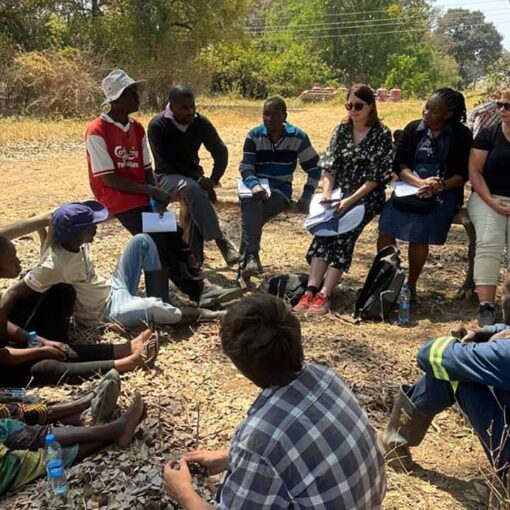Power dynamics are vital for understanding organisations because decision-making and relationships between employees and people in positions of power matter. These dynamics are ingrained within organisations and influence ethical behaviour and governance standards. Silent and structural power are subtle forms of power with manifold but often ignored effects. Correcting these inequalities can create equitable, transparent, and accountable treatment in the environments — positive change can occur here, building organisations based on equity and principles of justice.
Understanding power dynamics
Power is an intrinsic feature of organisational life that determines relationships, influences decision-making processes in organisations and shapes outcomes (Wong et al. 2020). Although power can stimulate innovation and collaboration, it primarily creates ethical issues like corruption, abuse of power and exploitation. (Azzhara et al. 2024). Instead, equal power distribution supports ethical choices and leads to business success.
Cultural acts result in silent power, more on structural power, embedded in the systems of organisations, which plays a significant role in shaping behaviours. “Silent” power frequently decides which voices get amplified (Kombluh 2022), while structural power may reify hierarchies and deepen inequalities (Godefroid et al. 2024). Scholars, organisational leaders, and management practitioners play an important role in addressing inequitable forms of power to foster fairness and accountability (Lois & Riedl 2022)
Governance frameworks dictate the power dynamics within organisations. Centralised systems can heighten corruption risks, whereas decentralised governance encourages accountability and inclusivity (Cao et al. 2024). However, silent and structural power can distort boardroom dynamics and limit diverse participation (Tillbury & Sealy 2024). Effective governance mechanisms, such as independent boards and participatory decision-making, are vital for rectifying these imbalances (Di Vito & Trottier 2022). Emphasising stakeholder interests and inclusive practices is essential for establishing fair leadership structures (Bell & Reed 2022).

Strategies for managing power dynamics in responsible management aims to balance economic, social, and environmental goals, but power relations are key to equitably hypothesising these goals. Evidence demonstrates that power asymmetries often trump minority opinions, with their destructive implications, resulting in irresponsible practices (Rivera-Valle & Silva 2024). Silent power sustains unarticulated norms that provide exclusionary norms against underrepresented groups, while structural power entrenches hierarchies that are a voice for dissent and innovation.
Inclusive leadership is a powerful tool to counteract these issues by fostering open dialogue and empowering employees (Alang et al. 2022). Cultures of psychological safety encourage employees to challenge imbalances and propose responsible practices without fear of retaliation. As scholars, organisational leaders, and management professionals, your commitment to inclusive leadership is vital for promoting equity and accountability in your respective fields.
Strategies in the workplace
Since power is a socially embedded relationship, we need intentional strategies to manage it that emphasise equity and accountability. Adopting transparent decision-making and participatory leadership discourages the risk of power abuse, while nurturing employee-driven empowerment encourages dialogue.
Ethical leading is fundamental; step up the empowerment of your leaders by honouring their power — provide independent audits and whistle-blower protections to improve accountability. Shaping more diverse types of leadership drives different ways of thinking and addresses structural inequities. Acknowledging and addressing power dynamics can foster equity and transparency, leading to positive change for all stakeholders.
Author
Johanna Heinonen works as a Senior Lecturer at LAB University of Applied Sciences. Among other things, she teaches ethics, governance, and responsible management to master’s students. This blog originates from that course and discussions with students.
References
Alang, T., Stanton, P. & Rose, M. 2022. Enhancing Employee Voice and Inclusion Through Inclusive Leadership in Public Sector Organizations. Public Personnel Management. 51(3). 309–329. Cited 19 Dec 2024. Available at https://doi.org/10.1177/00910260221085583
Azzahra, A., Savandha, S. D. & Olubisi, M. G. 2024. Effective Strategies for Corporate Governance and Risk Management in the Public Sector: Preventing Corruption and Abuse of Authority. Asian Journal of Engineering, Social and Health. 3(4). 911–919. Cited 19 Dec 2024. Available at https://doi.org/10.46799/ajesh.v3i4.366
balik. 2017. Boss, power, mobbing, success, people. Pixabay. Cited 19 Dec 2024. Available at https://pixabay.com/illustrations/boss-power-mobbing-success-people-2179948/
Bell, K. & Reed, M. 2022. The tree of participation: a new model for inclusive decision-making. Community Development Journal. 57(4). 595–614. Cited 19 Dec 2024. Available at https://doi.org/10.1093/cdj/bsab018
Cao, S., Liu, Z., Li, W. & Chen, L. 2024. How Can Governments Be Motivated to Stably and Ethically Govern a Country? Lessons Learned from China. Journal of the Knowledge Economy. Cited 19 Dec 2024. Available at https://doi.org/10.1007/s13132-024-01835-x
Di Vito, J. & Trottier, K. 2022. A Literature Review on Corporate Governance Mechanisms: Past, Present, and Future. Accounting Perspectives. 21(2). 207–235. Cited 19 Dec 2024. Available at https://doi.org/10.1111/1911-3838.12279
Godefroid, M. E., Borghoff, V., Plattfaut, R. & Niehaves, B. 2024. Structural power imbalances in global organisations: analysing IT governance from a postcolonial perspective. European Journal of Information Systems. 1–22. Cited 19 Dec 2024. Available at https://doi.org/10.1080/0960085X.2024.2325358
Kornbluh, M. 2023. Facilitation strategies for conducting focus groups attending to issues of power. Qualitative Research in Psychology. 20(1). 1–20. Cited 19 Dec 2024. Available at https://doi.org/10.1080/14780887.2022.2066036
Lois, G. & Riedl, A. 2022. Interplay between different forms of power and meritocratic considerations shapes fairness perceptions. Scientific Reports. 12(1). 11428–11428. Cited 19 Dec 2024. Available at https://doi.org/10.1038/s41598-022-15613-9
Rivera-Valle, S. & Silva, M. E. 2024. The effects of power imbalance on supply chain sustainability adoption: evidence from the artisanal fishing industry. The International Journal of Logistics Management. 35(1). 29–55. Cited 19 Dec 2024. Available at https://doi.org/10.1108/IJLM-02-2022-0087
Tilbury, L. & Sealy, R. 2024. Seen and not heard: A comparative case study of women on boards and process loss beyond critical mass. Corporate Governance : An International Review. 32(2). 190–204. Cited 19 Dec 2024. Available at https://doi.org/10.1111/corg.12524
Wong, L.-S., Coburn, C. E. & Kamel, A. 2020. How Central Office Leaders Influence School Leaders’ Decision-Making: Unpacking Power Dynamics in Two School-Based Decision-Making Systems. Grantee Submission. 95(4). 392–407. Cited 19 Dec 2024. Available at https://doi.org/10.1080/0161956X.2020.1800175




